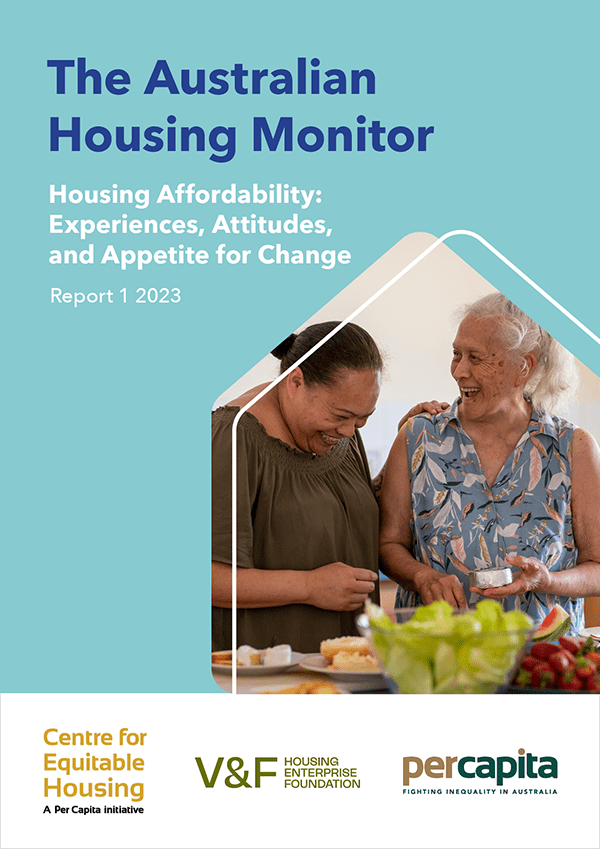While housing affordability has been a perennial issue in newspaper articles and policy debates for decades, recent trends have catapulted the topic into the forefront of many peoples’ minds. Volatile house prices, dramatic changes in rents and availability of rental properties, rapid shifts in interest rates and seismic changes to location and dwelling type preferences have defined much of the public conversation since the COVID pandemic reached Australia in early 2020.
The Australian Housing Monitor is a new annual survey of public attitudes toward, and experiences of, housing. It is one of the largest surveys of its kind and provides a rich set of data to understand how people living in Australia feel about their homes, and about the impact of ever-rising property prices. This report provides some of the headline results from the inaugural survey. Future reports will go into greater detail, and more complex analysis, of specific topics and issues.
The survey found that, while 85% of non-homeowners still hope to buy a home at some point, fewer than one in four (24%) expect to be able to do so.
Almost two-thirds of non-homeowners say that the only way they will ever be able to buy a home is if they receive a large inheritance.
The survey also found that housing stress is a rapidly growing problem across the country. 1 in 4 households report experiencing housing stress in the survey, up from 1 in 5 in 2017. This suggests that 1.25 million Australian adults have begun experiencing housing stress in the last five years.
Almost two-thirds of people (62%) agree that the continued increase in house prices is bad for the economy and is exacerbating wealth inequality.
The most popular policy response to the housing crisis is for the government to build more social housing, with support from almost three-quarters (72.2%) of Australians.
Two-thirds (66.9%) of survey respondents support some form of cap on rental increases, while a similar number (66.7%) want the government to step in to limit bank profits from residential mortgages.
The survey demonstrates a widespread appetite for government intervention to address the housing crisis.
Housing affordability ranked as the third most important electoral issue for survey respondents. 86.6% of renters see housing affordability as a very important electoral issue, but even 63.7% of those who own their home outright agree.
A significant majority of voters for all parties are concerned about housing affordability. Greens voters are most concerned, with 82.6% saying it was of high importance, followed closely by Labor voters at 80.6%.
The survey indicates that housing affordability could play a significant role in determining where swing voters place their preferences in coming elections, with 78% of Labor voters and 80.5% of Liberal voters who say they are likely to change their vote at the next election ranking housing affordability between 8 and 10 on a scale of importance.

